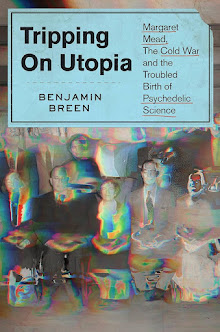 |
| Hand-colored daguerrotype, c. 1850, "Three Lively Women." |
After putting Res Obscura on hiatus for over a year so I could work on The Appendix, I've decided to resurrect it as an email newsletter and occasional blog. You can sign up for the weekly newsletter over here, and I'll also be posting weekly updates here which are gleaned from the newsletter's collection of links to interesting historical articles and archives.
- Preventing “Monkey Business”: Fettered Apes in the Middle Ages. "A monkey destroyed a charter at the court of Robert, Duke of Burgundy in the year 1288. The chancery of the Duke had to copy some original letters of his ancestor Eudes, dated from the beginning of the 12th century, because Robert’s monkey had torn the documents." [Medieval Animal Data Network]
- Cooking an eighteenth-century recipe for "Italian Cheese." [Cooking in the Archives]
- Tramadol is fed to cattle in Cameroon to such an extent that it has soaked into root systems. "The farmers apparently take the drug themselves, at pretty high dosages, saying that it allows them to work without getting tired." [Corante]
- Rebecca Onion on marriage advice before feminism. "The column’s very existence in a magazine for educated women sends a powerful message. Men’s magazines – the closest parallels to the women’s service titles – don’t tend to write about marital troubles, preferring to focus on sex." [Aeon]
- "It sounded like we were an ancient people and that we didn’t exist anymore.” Francie Diep on how museum dioramas of American Indians can institutionalize a perception of indigenous cultures as frozen in time and defunct. [The Appendix]
- Over one hundred high resolution eighteenth-century images of costumes and fashions created by Jacques Grasset de Saint-Sauveur. [Wikimedia Commons]
- The Slaver’s Objectivity. "The Economist’s controversial review of Edward Baptist’s new book ends on a feverish crescendo of denial about the fundamentals of American slavery: that slaves were slaves and masters, masters — with all the brutality, coercion, and punishment that relationship entails. Accordingly, the publication has retracted the piece and issued an apology, but the loss of credibility will probably be lasting. The irony is that their indictment of Baptist’s exhaustive book decries its lack of objectivity. To this end, tucked away in the last paragraphs of the review is a surprising and somewhat obscure reference to Hugh Thomas’s 1997 book, The Slave Trade." [Jacobin]
- Sexual Curiosities?: Aphrodisiacs in Early Modern England. "Jacques Ferrand’s 1610 book on erotic melancholy argued that ‘salt things doe cause a kind of Itching or Tickling in those parts that serve for Generation.'" [Notches]
- The Literature of Laughing Gas. A short essay I wrote for The Paris Review about William James' delightfully unhinged nitrous oxide writings:
By George, nothing but othing!
That sounds like nonsense, but it’s pure onsense!
Thought much deeper than speech … !
Medical school; divinity school, school! SCHOOL! - What the 17th Century Can Teach Us About Vaginas by Lili Loofbourow. "Early modern England saw conception as more drawing-room drama than fantasy epic; basically, sperm are shy and retiring and likely to glumly depart unless they’re actively made to feel at home." [The Cut]
- The Passing of the Indians Behind Glass. "Shannon Martin, who is also Anishinabe, explains how she felt as a kid, when she saw American Indian exhibits in natural history museums: “It sounded like we were an ancient people and that we didn’t exist anymore.” [The Appendix]





No comments:
Post a Comment